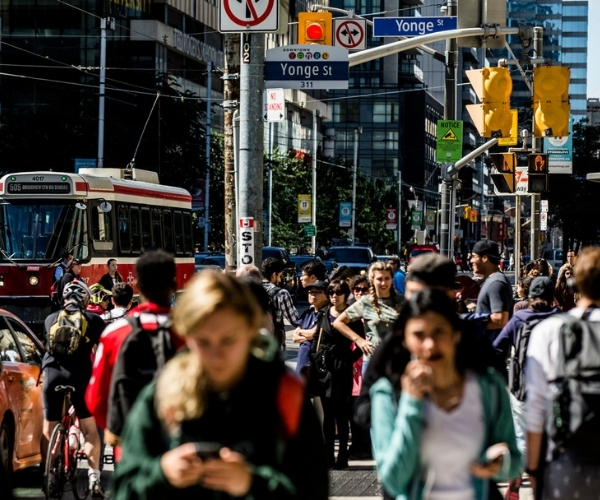Resources

Everything you need – All in one place!
Whether you're planning your journey or returning home, having the right resources can make all the difference. This page offers everything you need to make the most of your global education—from pre-departure planning and travel tips to health and safety, identity abroad, and re-entry support.
 (opens in new window)
(opens in new window)
Tips to manage your money before, during, and after your time abroad.
 (opens in new window)
(opens in new window)
Tips for living, learning, and thriving overseas.
 (opens in new window)
(opens in new window)
Everything you need to know before you arrive in Toronto.
 (opens in new window)
(opens in new window)
Practices to support your emotional health while abroad and upon return.
 (opens in new window)
(opens in new window)
Important considerations and resources for students from a variety of social locations.
 (opens in new window)
(opens in new window)
Everything you need to know about living in Toronto and experiencing life at TMU
 (opens in new window)
(opens in new window)
Explore the downtown Toronto neighbourhood
General questions
These experiences are valuable to prepare them for success in their future career by enhancing global networking skills, improving career readiness, and strengthening their resumes. The study abroad experience exposes students to diverse cultures, perspectives, and global issues, helping them develop empathy, adaptability, and a broader understanding of the world.
Some practices that parents and families can support students through the experience include:
- Offering positive reinforcement and encouraging them to build resilience, self-assurance, and independence in an unfamiliar environment.
- Staying connected by regular communication and sharing relevant resources.

Safety
The University requires all students participating in university-sanctioned activities abroad to complete the International Activity Risk Management (IARM) requirements each time they travel.
The IARM process includes pre-departure training and registering your trip with the university so that we can offer support and emergency assistance while you are abroad.
The University has partnered with International SOS, an International Risk Management provider, to offer our students medical, safety and security expertise, and emergency response support when traveling or living abroad.
In the event of an emergency, ISOS should be your first point of contact for support. You can reach out to ISOS 24/7 via phone ( (PDF file) Assistance Center phone numbers) or the ISOS Assistance App (external link) . As an ISOS member, you will have access to a worldwide network of 27 assistance centers staffed by doctors, nurses, coordinators and security professionals who will provide you with local expertise and emergency assistance.

Finance
Yes! Many students can apply for national, provincial and institutional financial aid specifically for study abroad. Check out our Scholarship Resources section for more details.
Costs can vary widely depending on your destination, as well as the type and duration of your study abroad program. We recommend that students research costs thoroughly when selecting a program. This will help estimate expenses, create a budget plan, and start saving effectively. Check out our Finance & Budgeting Handbook above for a detailed explanation and helpful tips.
Ontario students can receive OSAP while they are on exchange. They can check with Student Financial Assistance before applying for more details. Note that the difference in semester start and end dates at host institutions can sometimes result in a change in student loan amounts.
Out-of-province students should check with their provincial student loan organization to verify if they can continue to receive loans and bursaries while abroad. Many provincial programs will continue to provide funding for students in exchange programs. Student Financial Assistance may be able to provide them with more information.